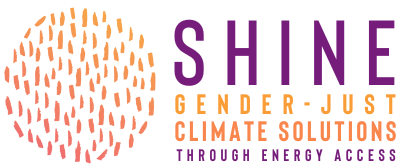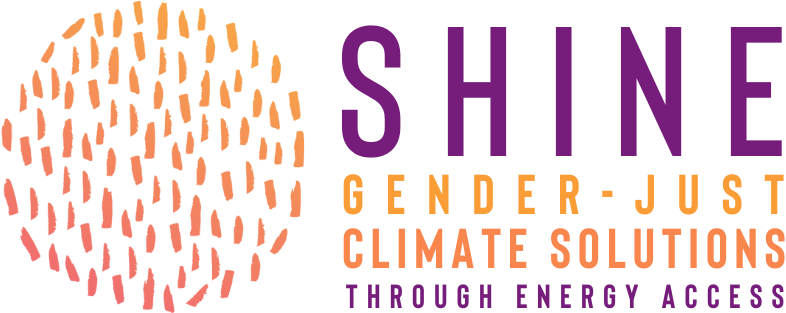SHINE a spotlight…
From Mela Chiponda, May 2024
Greetings! I’m delighted to connect with you and provide an update on the SHINE journey since I
joined full time in January 2024. We began the year by reflecting on SHINE’s story, our identity and
contribution, and the contexts and politics that inform who we are. This sharpened our direction and
approach for engaging with diverse partners and in spaces where energy justice might prove
transformative.
The idea of radical collaboration stands out from our analysis – working across many geographic,
sectoral, and thematic differences in new and experimental ways to bring to life a Gender Just
Energy Transition with communities and leaders who are directly impacted by energy poverty and
climate change. Strategies to get resources and technology into the hands of community and
women’s groups requires incubating and learning with frontline leaders as well as advocates and
donors.
With new clarity about our approach, therefore, we’re now officially The SHINE Collab.
The term “Collab” has become popular with feminist collectives and social movements that
emphasize learning from practice, disrupting what is considered “expertise”, and up-ending
hierarchies between global and local. We will still campaign to build support for community-driven
energy.
BUILDING NETWORKS
In January, we invited women-led energy enterprises in SHINE’s existing network for ‘Tea with
Mela’. They talked about their challenges, links to gender and climate justice, and work with local
communities on energy solutions including solar home systems, water pumps, solar lanterns, mini-
grids for household and livelihood use, clean cooking solutions, and maternal health support.






